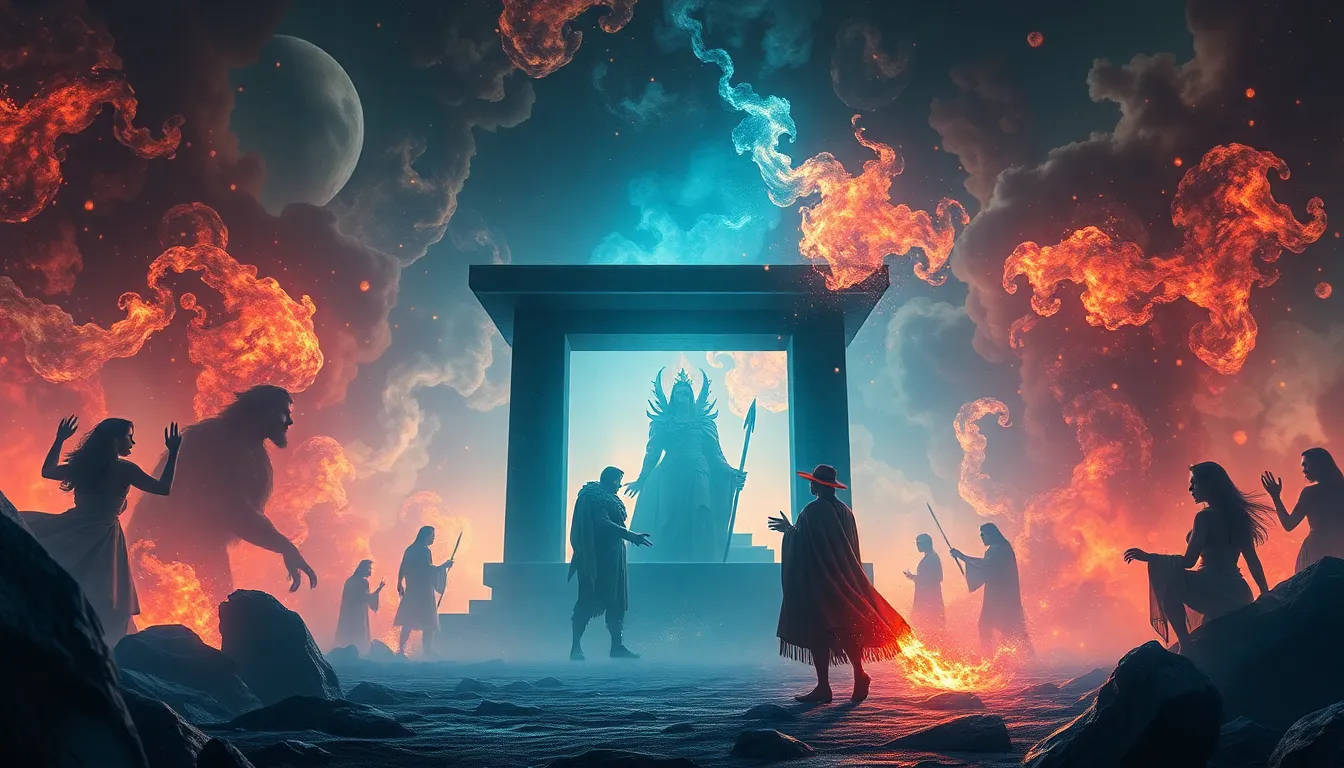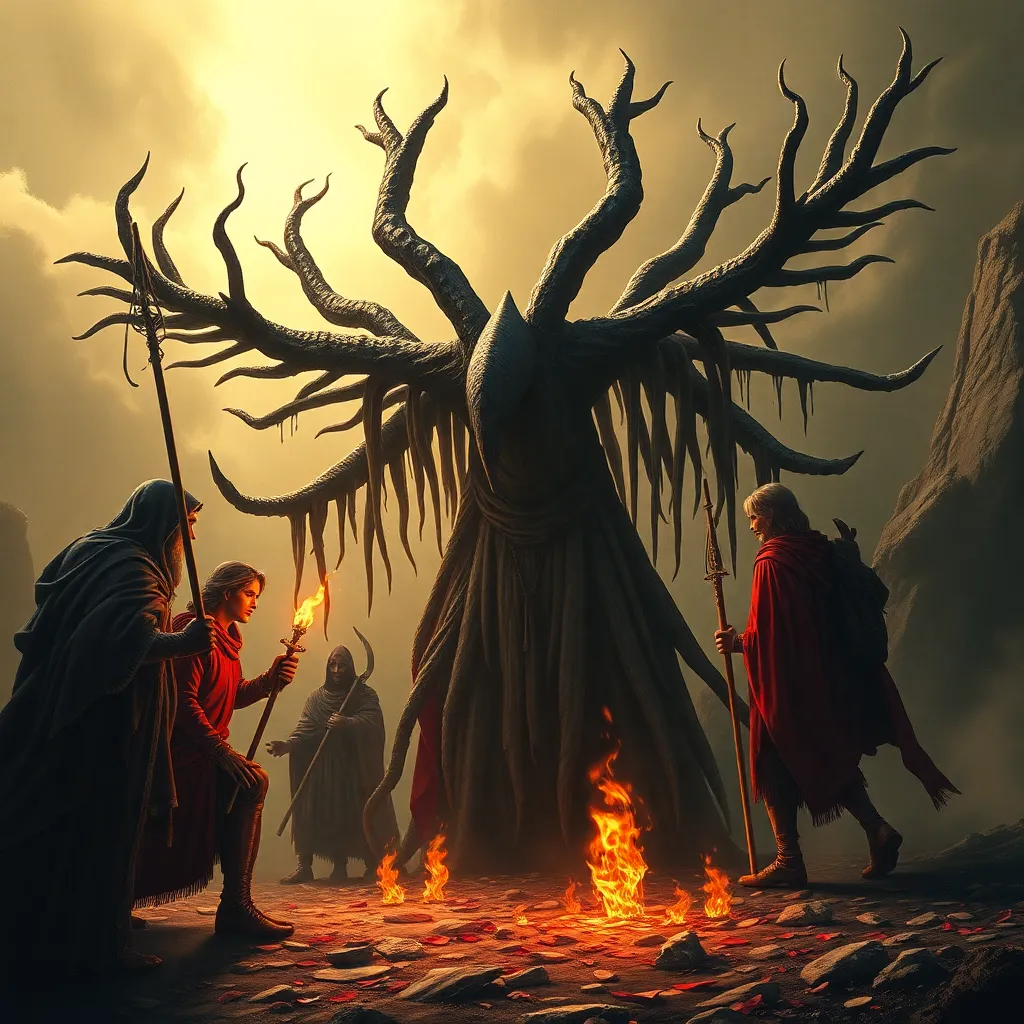Cultural Hero Myths: The Power of Collective Memory
Introduction to Cultural Hero Myths
Cultural hero myths are narratives that celebrate individuals who embody the values, aspirations, and struggles of a society. These myths serve as powerful tools for shaping collective memory, which in turn helps to form cultural identity. They provide a framework through which societies interpret their past, understand their present, and envision their future. By celebrating cultural heroes, communities can unite around shared ideals and moral lessons, reinforcing their social fabric.
Historical Context of Hero Myths
Hero myths have been a part of human storytelling throughout history, transcending geographical and temporal boundaries. They serve not only as entertainment but also as moral and educational tools. These myths can be found in various cultures, each reflecting its unique values and historical context.
- Greek Mythology: Figures like Hercules and Achilles exemplify the virtues and vices of their society, facing challenges that reflect human experiences.
- Indigenous Legends: Many Indigenous cultures have heroes such as Coyote or Nanabozho, who are often trickster figures that teach important lessons about life and nature.
- Modern Narratives: Contemporary myth-making often features figures like Martin Luther King Jr. and Malala Yousafzai, who represent the ongoing struggles for justice and equality.
The Role of Storytelling in Collective Memory
Storytelling plays a crucial role in preserving and transmitting cultural values across generations. It serves as a vehicle for sharing experiences, wisdom, and moral lessons. The contrasts between oral traditions and written records highlight different aspects of storytelling’s power:
- Oral Traditions: These allow for flexibility and adaptation, as stories can evolve with the community’s changing needs and values.
- Written Records: They provide a more permanent form of preservation, allowing specific narratives and interpretations to be codified and studied.
Both forms contribute significantly to the ways societies remember and relate to their heroes.
Cultural Heroes as Symbols of Identity
Cultural heroes serve as symbols of identity, embodying the ideals and aspirations of a community. They often reflect shared experiences, struggles, and triumphs, reinforcing a sense of belonging among group members.
Notable cultural heroes include:
- Nelson Mandela: A symbol of resistance against apartheid, his legacy inspires movements for justice and equality worldwide.
- Joan of Arc: A national heroine of France, she represents bravery and conviction, with her story inspiring countless adaptations and interpretations.
These figures not only represent their respective cultures but also serve as rallying points for collective action and identity formation.
Psychological Underpinnings of Hero Worship
The phenomenon of hero worship can be understood through psychological lenses. Humans have an inherent need for role models and figures who embody the qualities they aspire to possess.
Key elements include:
- Archetypes: Many heroes fit into archetypal roles, such as the “warrior,” “sage,” or “rebel,” which resonate deeply in the collective unconscious.
- Emotional Connection: Heroes often evoke strong emotions, inspiring individuals to aspire to greatness or to engage in social causes.
These psychological underpinnings illustrate why hero myths endure and continue to shape societal values.
The Evolution of Hero Myths in Contemporary Society
As society evolves, so too do the figures we consider heroes. Modern heroes often differ significantly from traditional ones, reflecting contemporary values and challenges.
Key influences include:
- Media and Technology: Social media platforms amplify the voices of new heroes, allowing for the rapid dissemination of stories and ideals.
- Diversity and Inclusion: There is a growing recognition of heroes from diverse backgrounds, challenging the historically Eurocentric narratives.
This evolution reflects a broader understanding of heroism, recognizing that anyone can embody heroic qualities in their own context.
Critiques of Hero Myths
While hero myths can inspire and unite, there are critiques regarding their potential dangers:
- Idealization: The idealization of heroes can lead to unrealistic expectations and disillusionment.
- Oversimplification: Complex historical figures are often reduced to simplistic narratives, ignoring the nuances of their actions and motivations.
These critiques remind us to approach hero myths with a critical eye, recognizing both their power and their limitations.
The Impact of Hero Myths on Social Movements
Cultural heroes often play a pivotal role in inspiring social movements and activism. They provide tangible examples of courage, resilience, and the pursuit of justice.
Examples include:
- Black Lives Matter: Figures like George Floyd and Trayvon Martin have become symbols of the struggle against racial injustice.
- Climate Activism: Greta Thunberg represents a new generation of heroes advocating for environmental protection and climate justice.
These heroes galvanize communities, serving as beacons of hope and motivation for collective action.
Preserving and Reinventing Cultural Hero Myths
To keep hero myths relevant, societies must engage in ongoing dialogue and reinterpretation. Strategies include:
- Education: Incorporating diverse narratives into educational curricula can foster a richer understanding of heroism.
- Cultural Institutions: Museums, theaters, and other cultural venues can reinvent hero myths through contemporary storytelling.
These efforts ensure that cultural hero myths evolve alongside society, remaining meaningful and impactful.
Conclusion: The Future of Cultural Hero Myths
The evolution of cultural hero myths reflects the ongoing changes in collective memory and identity. As societies become more interconnected, the significance of these myths will continue to grow, offering insights into shared human experiences.
In a globalized world, cultural hero myths not only help individuals connect with their own heritage but also foster empathy and understanding across different cultures. Their power to inspire, unite, and educate remains vital in shaping a more equitable future.



